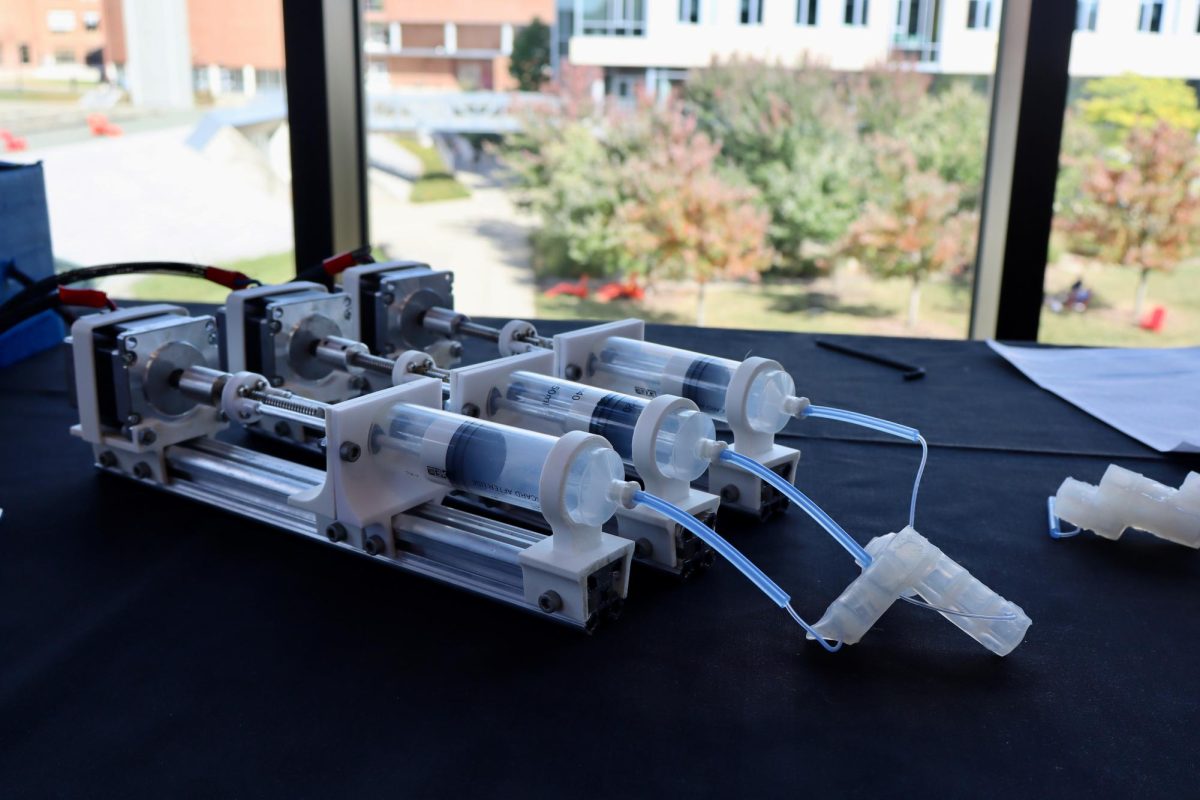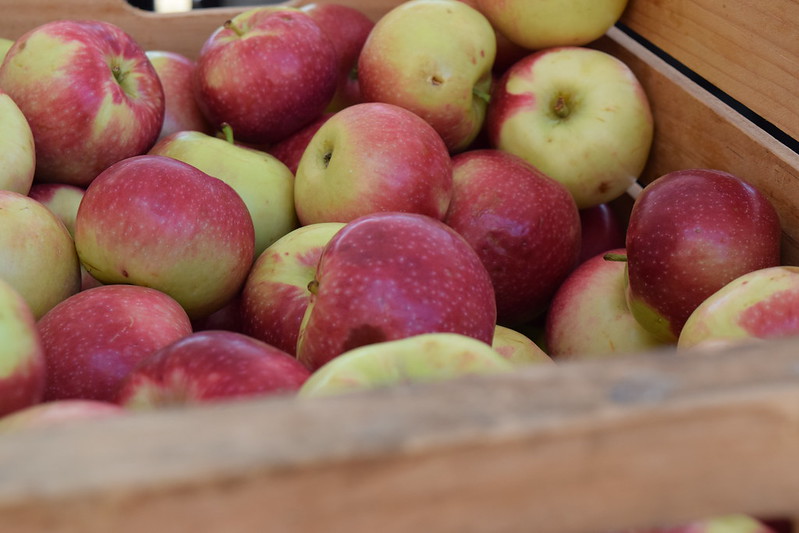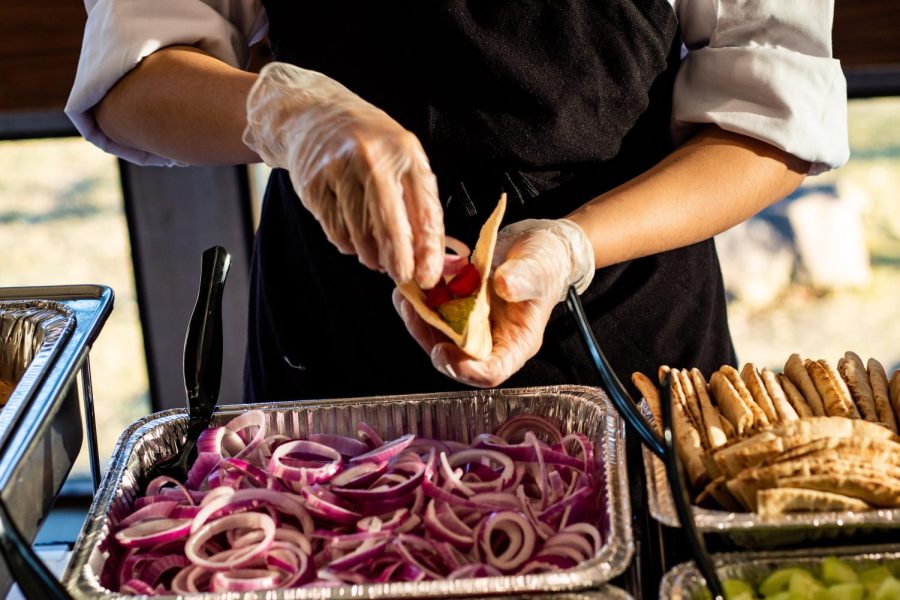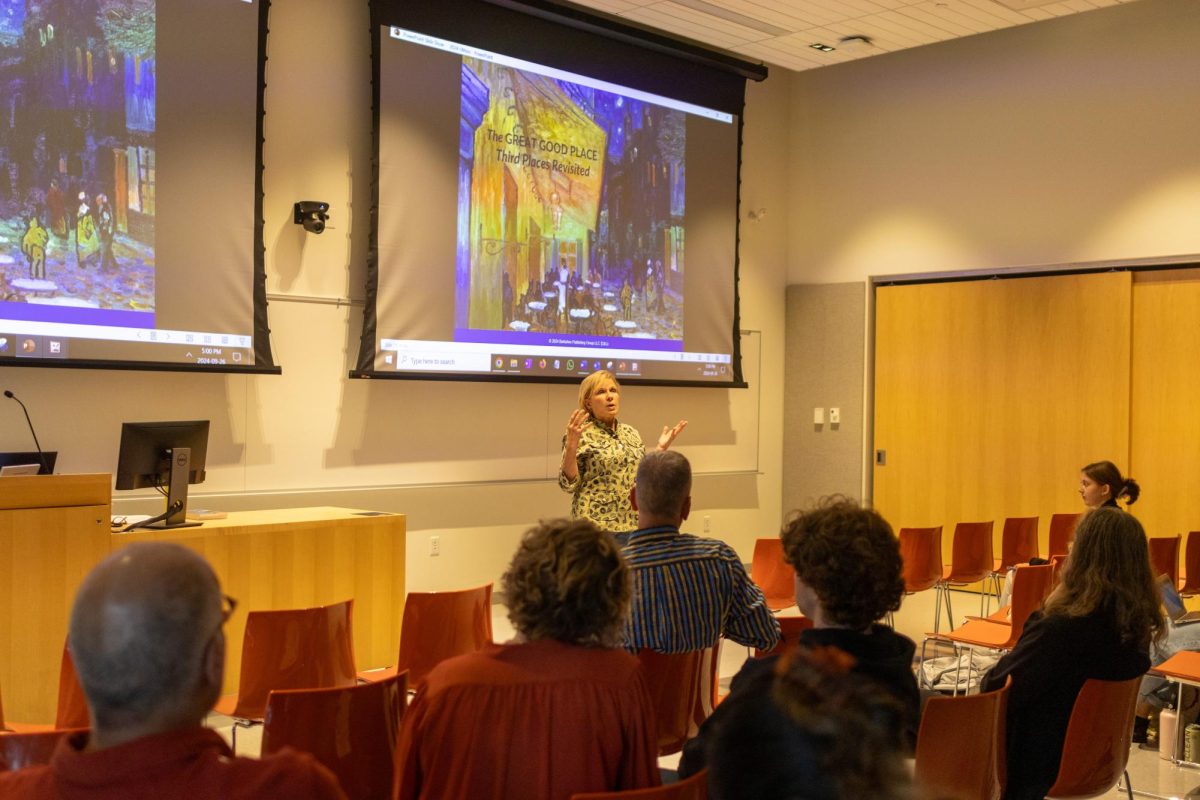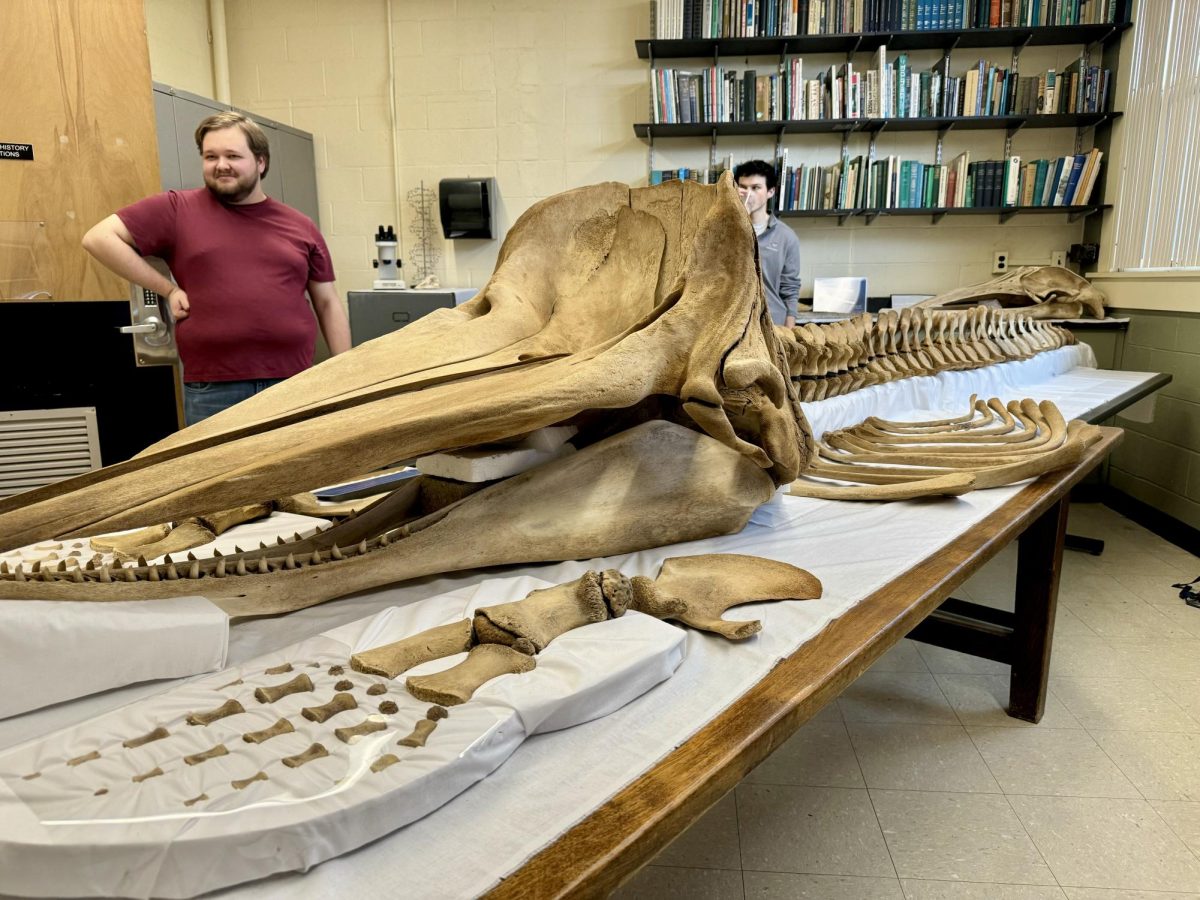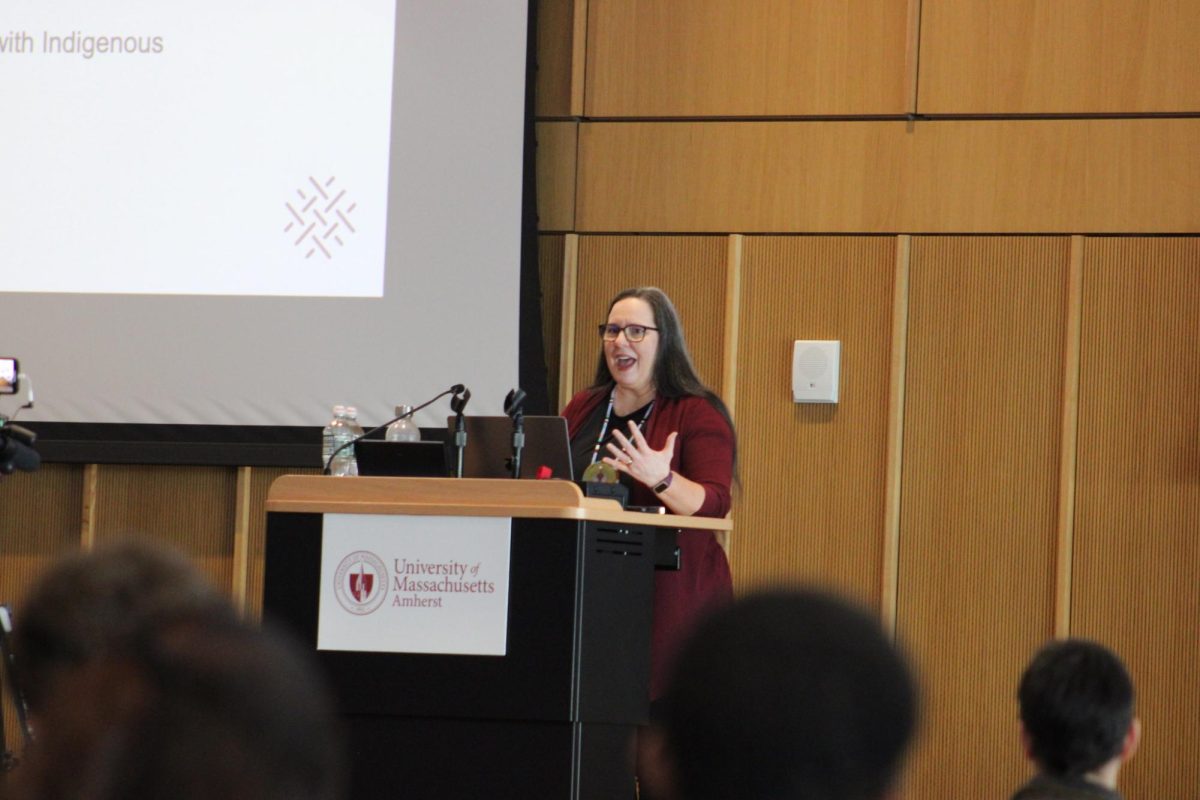
An Earth Day packed full of activities on campus came to a close Monday night, with a keynote address from filmmaker and environmental activist Annie Leonard.
Leonard, whose film “The Story of Stuff” has reached over 20 million views and has led to an organization of the same name, explained to the crowd the ecological consequences of American consumption.
“As I see it, it isn’t that complicated,” Leonard said. “(First), we are trashing the planet … second, we are trashing each other … and third, we aren’t even having fun doing it.”
Added Leonard: “If it’s not working and we’re not having fun, why don’t we just change it up?”
In her 20-minute film, Leonard went step-by-step through the creation of “stuff,” explaining problems with the current linear model of extraction, production, distribution, consumption and disposal. This model, she explained, has created a nation of consumerism with little concern for the environmental effects. Americans are creating more waste than ever before — two times as much as they were 50 years ago — and big corporation involvement in government has made it difficult to pass any major legislation.
While Leonard warned of the environmental effects the system may have, she also stressed the health risks that come along with the system.
“We take chemicals that we know can hurt us, and put them in our homes,” she said. According to Leonard, this has led to what is called a body burden – or the amount of toxic chemicals stored in your body. The levels of toxicity in the products sold, she said, have made this build up unavoidable, regardless of individual action.
While it is impossible to officially link these toxins to diseases, because of the sheer amount of toxins that people are exposed to each day, there appears to be a direct link between popular health issues such as cancer and the levels of toxins in our environment, Leonard said.
While she said that popular lifestyle changes, such as recycling, are helpful, “they are not commensurate with the size of the problem,” explaining that they are a “good place to start, but a terrible place to end.”
She expressed concern that America, as a nation, is forgetting how to make “big, bold change.” Leonard explained that more people are in favor of environmental action — over 80 percent — than any other major social change in the past.
What people need now, Leonard challenged, is action. She called to the students in the audience to be the ones to take that action, reminding people that students have been at the forefront of almost all major change.
Leonard hopes that her organization, The Story of Stuff Project, can bring about that action. The film, which explains the issue in simple terms, took off when it was released, gaining 50,000 views on the first day alone — more than Leonard ever expected.
She has since followed up the original film with seven shorter films about problem areas, such as electronic waste and the Citizens’ United v. Federal Election Commission decision. Leonard announced that she is currently working on the organization’s final film, “Story of Solutions,” and will be moving forward to help its followers take action.
According to Leonard, the organization’s website allows her and her team to keep in touch with 400,000 people, and encourages them to post their ideas for action onto the site.
From that, “The Story of Stuff” has identified the three issues that their followers are most passionate about: money in politics, plastic packaging and waste and the creation of a sharing economy. They plan to launch campaigns dealing with all three of these issues.
Leonard also expressed appreciation of the work UMass is doing to aid the environment.
“UMass Amherst is such a great place to be,” Leonard said. “I have never seen a school with so many and such high caliber people working towards sustainability. Everywhere I look here I see signs of hope and inspiration convincing me that change is possible.”
Erin Wolosz can be reached at [email protected].








